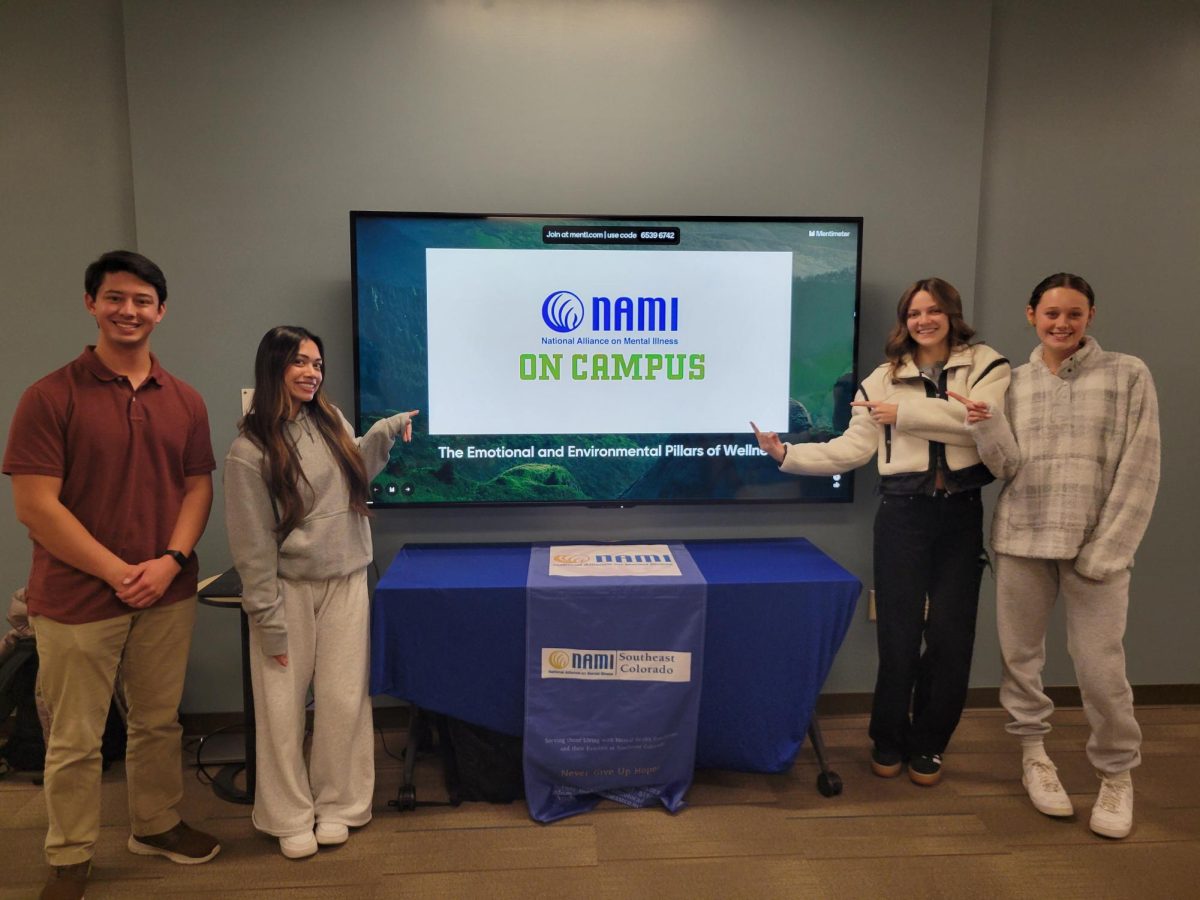The TODAY’s Spotlight on Reading/Writing features Colorado State University-Pueblo faculty, staff and students sharing their reading and writing experiences. The column is co-sponsored by the English and Foreign Languages Department and the English Club. This week’s feature highlights Provost Russ Meyer.
 Name/department/educational background: Russ Meyer, provost and vice president for academic affairs; BA & MA (English), Ohio State University; PhD (English), University of Minnesota
Name/department/educational background: Russ Meyer, provost and vice president for academic affairs; BA & MA (English), Ohio State University; PhD (English), University of Minnesota
What has been your greatest success in writing? I’ve published two books, and I’d consider them both among my greatest writing successes. One was a book on Spenser’s “Faerie Queene” (see below), the other a textbook on developmental writing. The former I wrote by myself, but the latter was co-authored. The experiences were amazingly different. I wrote the Spenser book in a long series of Friday mornings. I’d get up every Friday and force myself to write for a couple of hours before I went to work. My rule during that time was no talking, no radio, no music; just focus on getting the writing done. That lasted for about a year, and then I spent the next 18 months or so rewriting and revising in every spare minute I could find. That was followed by another few months working with (well, more often than not arguing with) a copy editor for my publisher. The textbook took about the same amount of time, but it involved constant discussion with my co-author. We worked on it almost daily, sometimes each writing separately, then revising each other’s writing; when we revised, we actually talked our way through every single sentence in the book. And then the two of us had to deal with a copy editor-who turned out to be an absolute delight to work with. The result was really strange for all three of us: the book has a voice that’s personal and identifiable, but it doesn’t belong to any one of us individually; it’s a genuine corporate voice-but without the stultifying tone that such a voice usually implies.
What do you struggle with in writing and how do you tackle that challenge? I imagine that everyone has to struggle with just getting started. That problem haunted me when I was writing both of those books, especially the first one (to say nothing of my dissertation). It’s just too easy to sit and stare at a blank page and wonder what you’re going to say. I solved that with a trick someone taught me: always stop for the day in the middle of a sentence. That way the first thing you have to write the next day is already set, and you skip the frozen stare.
What’s your favorite book of all time? Author? This is entirely too academic, but I have to say that it’s Spenser’s “Faerie Queene.” I have no idea how many times I’ve re-read it, but I know it was at least once a year during most of my teaching career, so 30 or more times. And every time it’s a different experience. I wrote my MA thesis on it, and it occupies a large chunk of my dissertation as well. It’s an arcane but wonderfully layered poem that can be read for its surface or for a whole. But of course if you’re going to understand it, you need to read my book. 😉
What are you currently reading? Author? I’ve just started an interesting book about the World War II Battle of Britain, “With Wings Like Eagles,” by Michael Korda. I’m not very far into it (and given my schedule, things may stay that way for a while), but it appeals to me because it’s looking at both the British and the German experiences in those decisive air battles, along with quite a bit about the civilian experience as well.
What’s your favorite guilty reading pleasure? I love mystery novels, and they’re what I generally read when I’m on a plane. I’m especially fond of Robert Parker, whose protagonist is named Spenser. Amazing coincidence, huh?
Do you have a favorite word or quotation and who is the author? I have three:
a. “God made me to laugh so that all who hear will laugh with me.” That’s from Genesis, I believe.
b. “The accidentals may change, but the essence is the same.” That’s Aristotle (and I’ve applied it to the causes of laughter).
c. “You don’t have to be somber to be serious” That’s a line I picked up from an old friend, Lauren Silberman, at a conference years ago. I think it’s wisdom to live by.
I guess it’s not coincidental that all three of those have to do with humor-since that was the subject of my dissertation.
For more information on this feature, contact English Club sponsor and English lecturer Constance Little ([email protected]), 549-2197.







